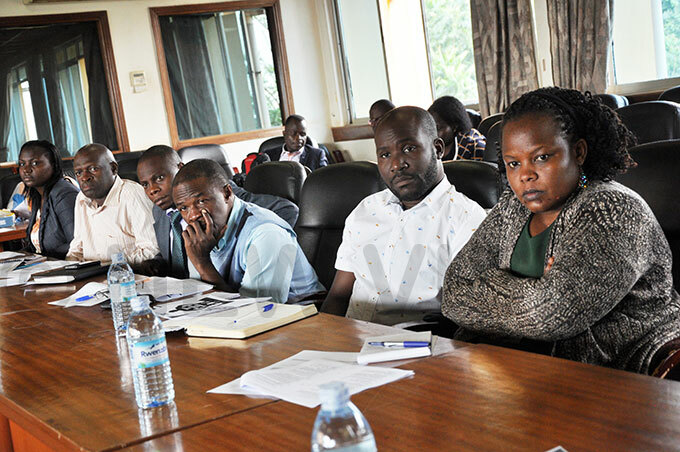MAK law dons want disability policy restructured
The survey ascertained that the policy narrowed to only the PWDs and their welfare and wants it to be restructured to cater and integrate all people who support and interact with them at the university.
KAMPALA-Makerere University (MAK) law dons expressed their concern to restructure the disability policy saying it is eliminative and sidelining with only the students.
This was discovered in research survey done by Dr Zahara Nampewo and Dr Harriet Diana Musoke of school of Law MAK for three months from April to July 2019 in MAK about the compliance of MAK with university disability policy 2014.
The survey involved only academic and non-academic staff of MAK.
"We found out that the policy only talks about students, yet there are other people in the university with disabilities who were not catered for and need to be prepared in the policy," Nampewo said.
The reason for the survey according to Nampewo, was to find MAK's obligation and standards of disability in terms of inclusiveness, equality, autonomy and independence of PWDs (People with disabilities)
The survey ascertained that the policy narrowed to only the PWDs and their welfare and wants it to be restructured to cater and integrate all people who support and interact with them at the university.
"The university doesn't only have students, there are lecturers, and other non-teaching staff members, but nowhere in the policy is it specified on how students should deal with these people," Nampewo noted.
Nampewo said from the findings, the lecturers need to be trained and oriented on how to handle PWDs in class as well as identifying not only those with visible inabilities but also those with intellectual and psychological inabilities.
"Most lecturers cannot even to identify PWDs, they easily identify those with visual, hearing impairments, physically challenged and albinos leaving out other students with other inabilities," Nampewo said.
 A cross-section of lecturers from different colleges during the capacity building training on disability law. (Photo by Juliet Kasirye)
A cross-section of lecturers from different colleges during the capacity building training on disability law. (Photo by Juliet Kasirye)
She also found out that the education and university environment also is not favorable especially during the examination time.
"Most lecturers usually get to know of PWDs during exams, so throughout the time, these students are struggling and the lecturers are not known to them," she said.
The study also found out that the policy is not widely known to the academic staff while only 30% of the staff in halls of residence was aware of the policy.
Dr Damalie Naggita Musoke, a lecturer and a coordinator of Disability, Law and rights Project at SoL MAK also stressed the need to cater for other persons in the policy who interact with PWDs in the university to ease the overall coordination and welfare of SWDs in MAK.
"Once the university admits PWDs, it has the duty to give them accessible learning environment and put necessary modifications to facilitate their learning and each ones roles need to be defined," Naggita said.
A lecturer from the College of Computer and Information Technology who preferred anonymity welcomed the idea of training on disability and said he was not in position to help a student who had both visual and hearing impairments that withdrew from the course because he was not prepared on how to handle that case.
Nampewo noted that the issues with PWDs are currently handled by the office of the dean of students which is already crowded with addressing other student's affairs like strikes, meals of students in Halls of Residence, which has made it PWDs issues to be overshadowed, calling for the establishment of a Disability support Centre.
Section 6.4 (iv) of the policy talks about creating a Centre a Disability Support Centre for promoting awareness, guidance and support to PWDs, which has never been established.
The policy on PWDs was enacted in February 2014 to guide the provision of equal opportunities for the enhancement of participation, protection of rights and empowerment of PWDs regardless of age, gender and nature of disability at MAK.
Disability defined by National Council for Disability act (2003) is a permanent and substantial functional limitation in the performance of daily life activities caused by physical, mental or sensory impairments and environmental barriers resulting in limited participation approach.
This was revealed during capacity building training on disability law and rights for the staff of different colleges at MAK recently.